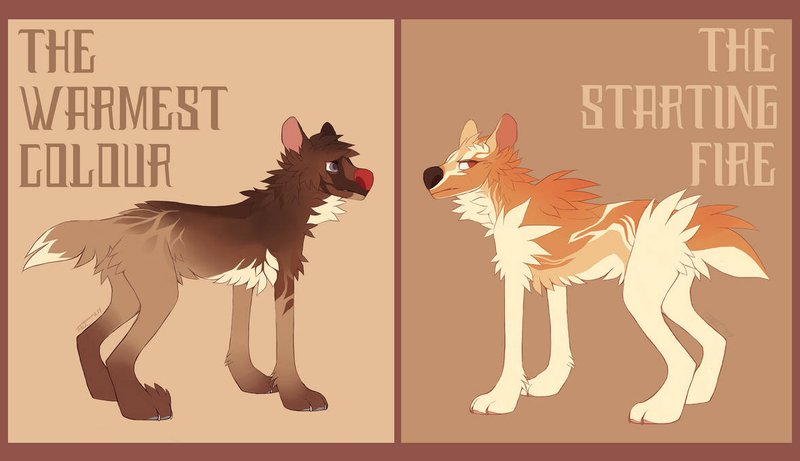
Dholes are social animals primarily found in various parts of Asia, from India to Southeast Asia. They’re characterized by their reddish coats, large floppy ears, and a pack mentality that plays a crucial role in their parenting. Much like a well-oiled team, dholes coordinate their efforts to ensure their pups grow up healthy and strong. Understanding their nurturing approach can shine a light on the importance of family dynamics in the animal kingdom. So, grab your coffee, and let’s explore how dholes tackle the challenges of parenthood in the wild.
The Role of the Pack in Raising Pups
First and foremost, dholes are known for their remarkable social structures. They live in packs that can range from just a few dogs to more than twenty. This communal lifestyle provides a strong support system for raising pups. The entire pack participates in the upbringing, creating a family-like environment that’s essential for the survival of the young. Here’s how it all works:
- Collaborative Care: Unlike some other species, where only the parents take on the responsibility, dholes share the load. Everyone from the older siblings to the aunts and uncles pitches in. This means that while the mother is nursing, others can hunt or keep watch, making sure the pups are safe and well-fed.
- Learning from Adults: Young dholes often learn vital skills by observing older pack members. This mentorship helps them understand hunting techniques and social behaviors. It’s like a little school of life happening right in their den!
- Protection Against Predators: The pack’s size aids in keeping the pups safe. When danger lurks—say, from a larger predator—the adults can band together to create a protective barrier. It’s a bit like a superhero team coming together to shield their young.
With this kind of teamwork, dholes ensure their pups have all the resources they need to thrive in the wild.
Denning Habits and Pup Development
Dholes have specific behaviors when it comes to nurturing their young. One of the most crucial aspects is their choice of den sites. Dholes typically dig out or find burrows in dense vegetation or rocky areas. Here’s what you need to know:
- Secure Locations: The location of a den is vital. It needs to be hidden from potential threats, allowing the pups to grow in a safe environment. These dens provide shelter and warmth, especially when the pups are just a few weeks old.
- Size and Space: A good den can accommodate the whole family, making it a cozy nursery. The ability to stretch and move around is essential for the pups as they begin to explore their world.
- Returning to the Den: Even as the pups grow and start to venture out, the older members of the pack frequently return to the den to check on them. This constant presence reassures the young ones they’re never truly alone.
By creating a safe haven in the wild, dholes lay the groundwork for their pups’ eventual independence.
Nourishing Pups: The Diet and Feeding Practices
Feeding young dholes is another crucial aspect of their upbringing. Initially, pups depend heavily on their mother’s milk. However, as they grow, their diet transitions to solid food, which is where the pack’s cooperative nature comes into play.
- Weaning Period: Pups are usually weaned off their mother’s milk around eight weeks old. During this time, they begin nibbling on meat that the adults bring back after hunting. It’s like introducing a toddler to solid foods—with some delicious game being the first offerings!
- Group Hunting: Adult dholes hunt in packs, allowing them to take down larger prey. This provides a steady food supply for all members, including the young pups who begin to learn how to eat meat. They’ll often be seen gnawing on small scraps or learning how to tear into larger offerings.
- Teaching Skills: While the adults provide food, they’re also teaching the young how to scavenge and find food. This is an essential skill for their survival, especially as they mature and start hunting with the pack.
In essence, the nutritional journey of a young dhole is a blend of maternal care and communal support.
The Importance of Socialization
Socialization is a critical part of a pup’s life in a dhole pack. Just like human kids learn how to get along with others and navigate social dynamics, young dholes must do the same within their pack.
- Playtime: Pups engage in play fights and chasing games with their siblings, which are essential for their development. Through these playful interactions, they learn vital skills like coordination, agility, and social hierarchy.
- Understanding Pack Dynamics: Living in a pack means understanding one’s place in the social structure. Pups learn who the leaders are and how to navigate their relationships with older pack members. This understanding is crucial for their future roles within the group.
- Building Bonds: The playful interactions help to strengthen bonds within the pack. The stronger these relationships, the more cohesive the pack will be, ensuring that everyone works together for the good of all—including the pups!
This emphasis on socialization helps set the stage for a harmonious and functional pack as the pups grow older.
Challenges Dholes Face in Parenting
While dholes have a robust system for raising their young, they also face several challenges that can impact their parenting. Just like any family, the obstacles they encounter can shape their parenting style and their pups’ future.
- Habitat Loss: With deforestation and land development, dholes are losing their natural habitats. This not only affects their ability to find food but also limits safe denning sites. It’s like trying to raise a family in a shrinking neighborhood!
- Competition: Dholes often compete with other predatory species, like tigers or leopards, for food. When resources are scarce, it becomes more challenging for the pack to provide for the pups.
- Human Encroachment: As humans expand into dhole territories, conflicts can arise. Poaching, hunting, and vehicles pose significant threats, making it harder for dholes to raise their young safely.
Addressing these challenges is critical for the future of dholes and their ability to raise healthy pups in the wild.
Raising young dholes in the wild is an intricate dance of cooperation, learning, and adaptation. From the supportive pack structure to the nurturing environment of the den, every aspect is designed to enhance the survival of their young. Just like any other family in the animal kingdom, dholes face challenges that can make their task more difficult, but their resilient spirit shines through.
So, next time you think about the animal families in the wild, remember the dholes and their incredible approach to parenting. They remind us of the strength found in community and the importance of nurturing the next generation. In a world where nature often battles against adversity, dholes stand as a testament to the power of teamwork and love.

